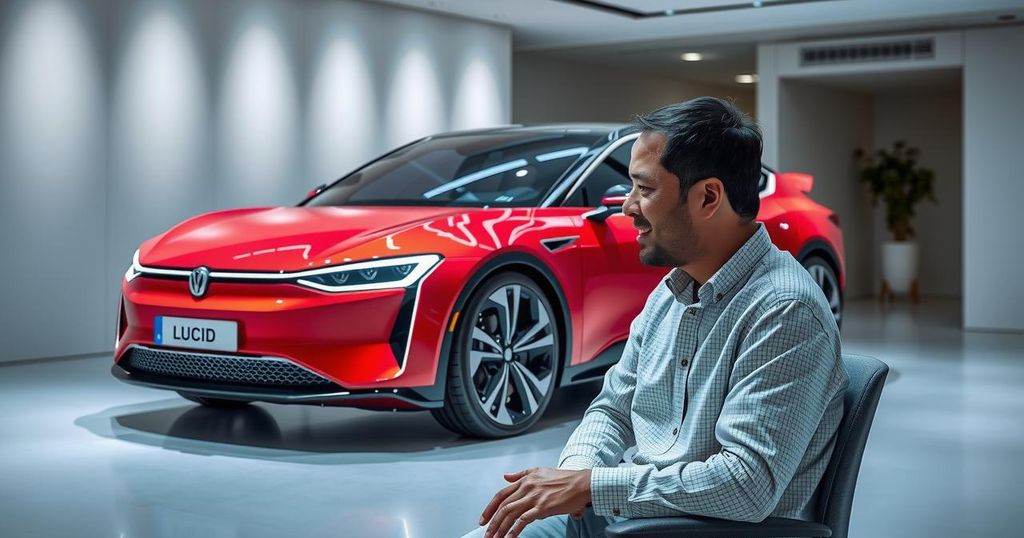Lucid Motors’ Eric Bach Analyzes the Impact of China’s EV Surge on the Industry

Lucid Motors’ Chief Engineer, Eric Bach, recently explored the strengths of Chinese EV manufacturers, particularly focusing on the Xiaomi SU7. He acknowledged their advancements in craftsmanship and digital technology while highlighting that, despite these successes, they still face challenges in driving dynamics. Bach’s insights emphasize the importance for Lucid to leverage this knowledge as they prepare for increased competition in the future.
The automotive landscape has experienced a significant shift, with Chinese electric vehicles (EVs) becoming increasingly competitive on the global market. Lucid Motors’ Chief Engineer, Eric Bach, has recently commented on the Xiaomi SU7— a notable contender that has garnered attention in the auto industry. Historically, Chinese automotive manufacturers depended heavily on collaborations with foreign companies, but they have since evolved into formidable players, exporting their vehicles worldwide and expanding into markets like Europe and South America.
Bach highlighted that Lucid is not only acknowledging this transformation but actively studying Chinese brands such as Xiaomi, Nio, and Zeekr. Their analysis seeks to uncover the strengths that have enabled these companies to thrive, particularly noting their proficiency in digital technologies and their impressive production speed—qualities that have undoubtedly contributed to their successes.
He emphasized the craftsmanship of Chinese vehicles, citing the Xiaomi SU7 as an embodiment of quality and sophistication. “If you look at the maturity and the refinement of the exterior body or the interiors, you can find some of the competitors there showing a very high standard of execution,” Bach elaborated.
Furthermore, he remarked on the advances in digital features and infotainment systems among Chinese manufacturers, suggesting that they possess a productivity edge likely due to their larger pools of focused talent working longer hours. In contrast, Bach acknowledged that while these automakers excel in certain areas, they tend to lag behind in driving dynamics and overall vehicle performance, qualities that Lucid aims to maintain as its competitive advantage.
Bach’s insights underscore the ongoing evolution of the automotive industry, where the rise of Chinese automotive firms encourages both competition and innovation amongst established players like Lucid Motors. Despite current challenges such as tariffs and regulations limiting direct competition in the U.S., the automotive landscape remains fluid, hinting at potential shifts in market dynamics in the near future.
With multiple challenges ahead for Lucid, including ramping up mass production for their upcoming models, the insights from Chinese competitors may prove invaluable as they strive to maintain their unique offerings. Overall, it is imperative for Lucid Motors to balance the lessons learned from their Chinese counterparts while sustaining their distinguished performance attributes in an increasingly competitive market.
The automotive industry is undergoing a substantial transformation, particularly in the realm of electric vehicles (EVs). Chinese automakers have evolved from relying on technology transfers from Western manufacturers to becoming leading exporters and innovators. Companies such as BYD, Geely, and Xiaomi are making strides not just in their domestic market but are also expanding their reach globally, raising questions among Western manufacturers about how to compete effectively. This new landscape has prompted firms like Lucid Motors to take a closer look at their Chinese rivals to identify strengths and weaknesses in order to enhance their strategic positioning in an evolving market.
In conclusion, Lucid Motors is acknowledging the competitive landscape presented by Chinese automakers, particularly regarding advancements in craftsmanship and digital innovation as exemplified by the Xiaomi SU7. Chief Engineer Eric Bach’s analysis highlights the strength of these companies and serves as a call for Lucid to leverage these insights in order to sustain its leading position in the high-performance EV market. As companies like Lucid navigate future challenges, including potential tariff changes and competitive pressures, the lessons drawn from Chinese automotive developments will be crucial to their ongoing success.
Original Source: insideevs.com




